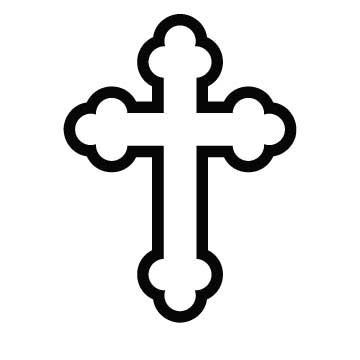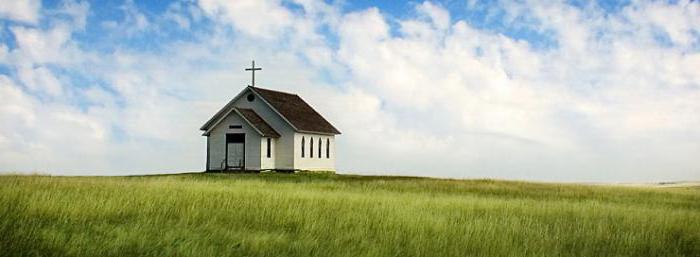Secularism is one of the most important characteristics of a modern, modernized state. Today, this principle is embodied in the laws of most countries of the world.
The basics of the secular system
The term "secular state" means that the state is free from the influence of any religion, its rites and dogma. With such a system, representatives of all kinds of clerical organizations cannot influence power. Secular state means that the public education system, legal and political institutions are developed separately from the church.
All of the above norms are enshrined in the Constitution of the Russian Federation. The Russian Federation is a secular state. This principle is stated in part 1 of article 14 of the Constitution. Secularism is one of the foundations of the modern political system of Russia. It fixes the balance of interests of religious associations and the state. In addition, secularism is one of the consequences of the ban on official ideology in Russia.
Background
Modern state models have evolved over many centuries. All this time, relations of secular and religious authorities have been built in different ways. In former times, the church (in the broad sense of the word, not just Christian) played a large role in any society. Until the end of the Middle Ages, religion was not just an important factor in human life, it was a mandatory dogma. The heads of denominations (popes, patriarchs, rulers of caliphates, etc.) enjoyed enormous power.
The state and religion fought constantly for supremacy. For example, in Russia, this confrontation resulted in a crisis of the 17th century, when an open conflict broke out between Tsar Alexei Mikhailovich and Patriarch Nikon. During the heyday and the greatest influence, the church tried to get the functions of the executive branch. Most often, however, she sought to set the standard for the behavior of society, to regulate its life using sacred rules. The more a religious organization tries to influence the situation in the country, the more inevitable is its merging with the state. In addition, when a particular denomination achieves a privileged position, it tries to deprive other teachings of influence. By becoming official, the church begins to live on public funding. For example, in Russia until 1917, the Russian Orthodox Church received from the executive branch millions of rubles for the maintenance of its apparatus and the construction of new churches.

The struggle of power and the church
Over a long human history, the state and religion have come a long evolutionary path. Science had a great influence on their development. With the advent of this factor in modern times, the influence of religion on society began to decline. At the same time, the state began to win back its positions. An important fork in this path turned out to be the Thirty Years' War of 1618–1648. This conflict between European states began as a traditional medieval religious, and ended with a triumph of national and state interests over confessional. The countries of the Old World were changing. Gradually, in a growing number of societies, the signs of a secular state manifested themselves more vividly. This process ended with the separation of the church.
Almost always, secularism appeared as a result of the initiative of the authorities. In an effort to get rid of the widespread influence of religion, states began to modernize their device. Church institutions were liquidated or lost their authority. Secularization also took place. Land, real estate and other expensive property were taken from the church. All this was nationalized. In our country, similar campaigns were carried out under Peter III and after the 1917 revolution. The Russian state is a secular state, the foundations of which were laid in the era of the USSR and somewhat redesigned in the 1990s.
Church Place in Society
Under the secular model of the state, the church loses a number of powers. She cannot register birth, marriage, death, and also regulate family and marriage relationships. Religious organizations are deprived of the opportunity to participate in the political process. In particular, all church institutions within the state machine are being liquidated. In Russia, until 1917, the Synod existed in that capacity.
A secular state means that the church can no longer influence state affairs. At the same time, power in soft form continues to influence the confessional sphere. The legal regulation of the activities of church organizations is being formed. Often the state cooperates with them in resolving social issues. Regulation by the authorities is also necessary because all kinds of confessional movements can become the basis for the emergence of sects and totalitarian communities.
Russian model
In the Russian Federation, a secular state also means that citizens are guaranteed freedom of religion and conscience. Residents of the country can relate themselves to any faith or not relate to any. Every citizen has the right to choose, change and spread his faith. Exactly the same opportunities can be enjoyed by citizens of other states legally located on the territory of the Russian Federation.
No one is obliged to declare their attitude to religious teachings. No one can be forced to identify a religion and abandon beliefs. Forced involvement of children in religious organizations without the permission of their parents is strictly prohibited. According to the same principle, an educational program has been built in public schools.
Features of secular society
Important signs of a secular state are the external attributes of power. The authorities and local governments cannot accompany their activities with public religious ceremonies or ceremonies.
This rule applies to all officials. No one in the public service can use his position in order to force subordinates to perform certain religious rites. The same goes for military personnel. Respect by the authorities for the religion of citizens is what a secular state means.
Secularism in the modern world
Today, in spite of everything, states that have their own official religion continue to persist. For example, these are Israel (Judaism), England (Church of England), etc. In most countries, the equality of all faiths (Germany, Japan, Italy, etc.) is established. It is also worth noting theocratic states in which the supreme power belongs to the church. A vivid example of such a system remains the Vatican.
What does a secular state mean ? That power is not merged with the church. A similar configuration is present in the clerical state, but there are fundamental differences in it. In such a system, the church with the help of legal institutions influences the decisions of the authorities. Their interaction occurs indirectly, which, however, does not weaken the effect on society. For example, in the clerical state , church dogmas are necessarily studied in schools.
Legislation Convergence
Secularism at its present stage of development is full of contradictions. This phenomenon develops in different, sometimes opposing, directions. In the modern world, an unprecedented diversity of secular states has developed. It is explained by the unique legal, cultural and socio-political development of each particular country.
Today, the institution of secularism is becoming widespread thanks to the globalization of the world. This, among other things, supports the trend of convergence (convergence) of the legislations of different countries. For example, the Russian Federation has experienced this trend. The secular state in our country was built according to the Western model. Another even more striking example of convergence is the European Union. The countries of the Old World included in this organization experience the results of integration policies. Their national laws are converging and unifying.
The many faces of secularism
In addition to the convergence tendency in the development of secularism, other patterns are also observed. One of the most important is diversification. It lies in the desire to pursue its own unique policy towards the church. In other words, diversification is the opposite of convergence. Despite the EU membership, today the authorities of France and Germany are trying to preserve the original secular state. A similar policy can be seen in other countries.

Comparison of the experience of different states shows that everywhere there is one's own understanding of secularism. Moreover, the attitude towards religion today is changing before our eyes. The whole world has become characterized by rapid transformations, which previously spent decades and centuries. The current secularism is polysemic - ambiguous and diverse. At the same time, everywhere it is based on two fundamental principles - the ban on the establishment of a compulsory religion and the separation of religious organizations from the state.